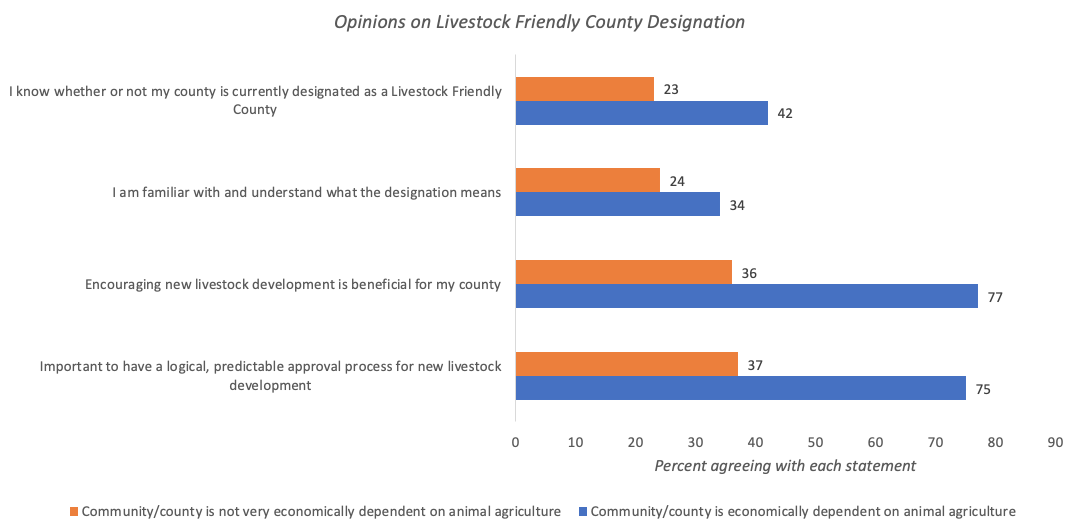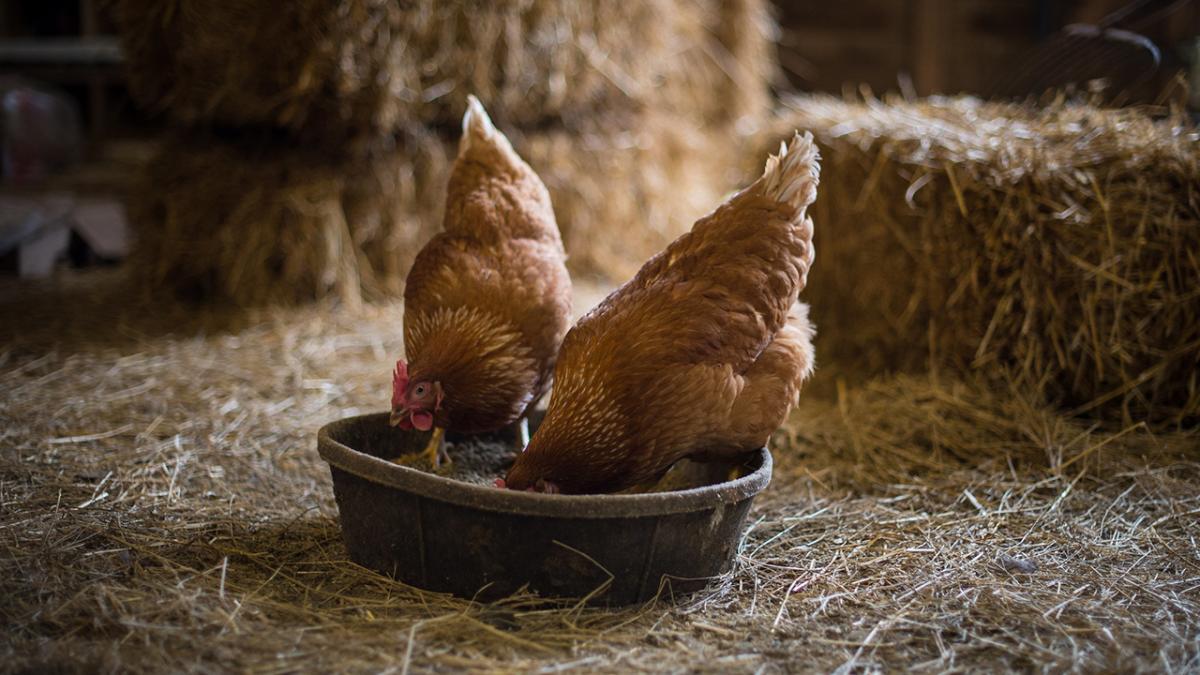Lance Cheung/USDA (Flickr/Public Domain)
Animal agriculture has and continues to play a critical role in Nebraska’s economy. Almost one-half (48%) of Nebraska farms have livestock or poultry operations.
The 2020 Nebraska Rural Poll examined rural Nebraskans’ connection to animal agriculture and their opinions on the Livestock Friendly County designation and livestock development in the state. When looking at animal agriculture in particular, one-third of rural Nebraskans (33%) said their economic well-being is very much dependent on it, and almost another quarter (23%) said it impacts some of their economic well-being. Furthermore, most rural Nebraskans say the economic well-being of their community or county is very much dependent on the economic success of animal agriculture. Just over seven in 10 rural Nebraskans (71%) said the economic well-being of their community or county is very much dependent on animal agriculture.

While rural Nebraskans may recognize their connection to animal agriculture, they may not be as familiar with some of the agricultural policies in the state. Many rural Nebraskans reported they were not familiar with the Livestock Friendly County designation. This designation is administered by the Nebraska Department of Agriculture and adopted by many counties across the state. It is a voluntary program that helps counties and agricultural producers promote the livestock industry and further development and expansion. Nebraska currently has 50 Livestock Friendly Counties. Only four in 10 rural Nebraskans reported knowing whether their county was currently designated as a Livestock Friendly County. Just under one-third (32%) reported being familiar with the designation.
If respondents believed their community or county’s economic well-being was at least somewhat dependent on animal agriculture, they were more likely to report being familiar with the designation and knew its significance. They were also more likely to believe encouraging new livestock development is beneficial for their county and that it is important to have a predictable process for approving this development. Just over four in ten persons (42%) who reported that the economic well-being of their community or county was somewhat or very dependent on animal agriculture say they know whether or not their county is currently designated as a Livestock Friendly County, compared to 23 percent of persons who say their community or county is not at all or only a little economically dependent on animal agriculture. And, just over three-quarters (77%) of persons saying their community or county is at least somewhat economically dependent on animal agriculture agree that encouraging new livestock development is beneficial for their county, compared to 36 percent of persons who say their community or county is not very economically dependent on animal agriculture. Similarly, three-quarters (75%) of those who believe their area is economically dependent on animal agriculture agree that it is important to have a logical, predictable approval process for new livestock development in their county. Only 37 percent of persons living in areas not economically dependent on animal agriculture share this opinion.

Thus, even though many rural Nebraskans are unfamiliar with the Livestock Friendly County designation, these survey results are consistent with its goals – showing the county is open to potential livestock development and that decisions on new development are straight forward and predictable.


